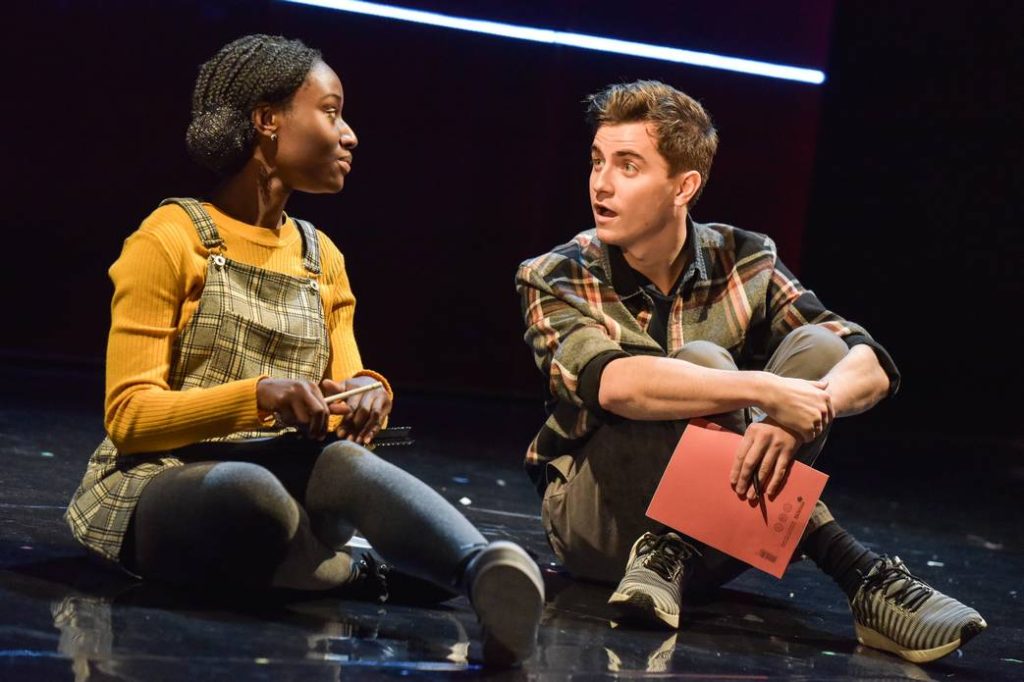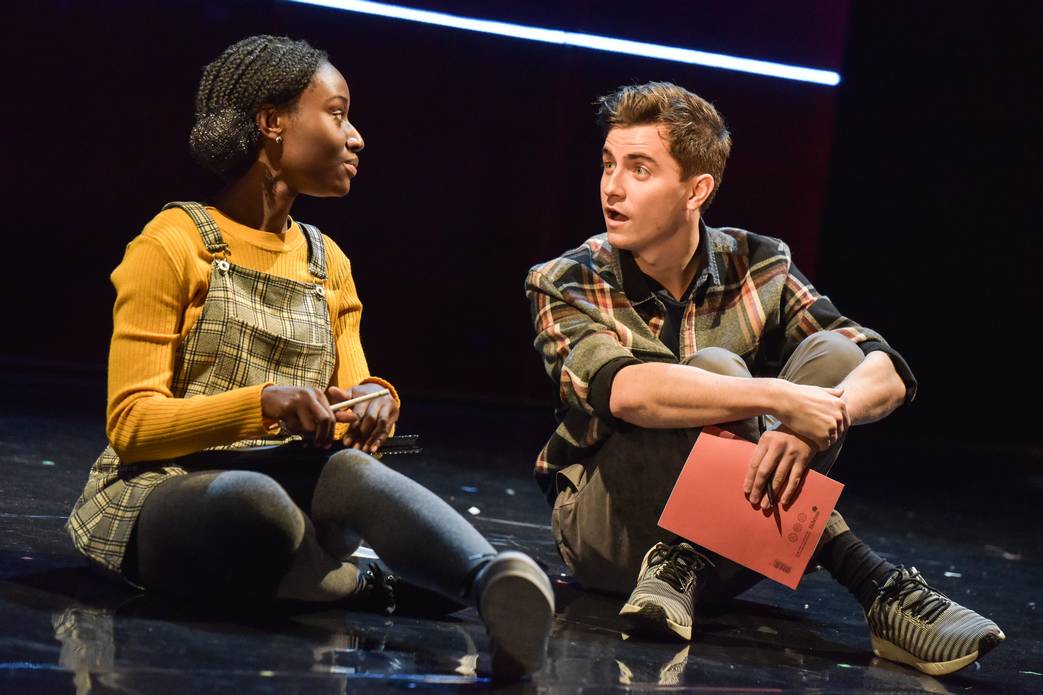
Director, Esther Richardson, has achieved that rare feat of taking a successful piece of literature (by Malorie Blackman) and making a truly theatrical experience. With the minimum of properties and with the imaginative space of Simon Kenny’s design she has translated Sabrina Mahfouz’ adaption into a fast paced, fluid and expansive production, indeed something of a chamber epic which does justice to both the sensitivity of teen romance and the challenges of political expediency and struggle.
The play does not directly address the roots of racism, save in the introjection of familial transmission, concentrating only its symptoms and the gnawing social canker it engenders. The novel prism with which we view the play’s events is an inversion of the historical norm of apartheid or similarly segregated regimes. Thus ‘noughts and crosses’ are placeholders for blacks (crosses) and whites in a system where the crosses are in the ascendant and noughts struggle to reform or overturn what seems to be the natural order.
It would be easy to read the play as merely a critique of the South African apartheid regime, but that comfortable option would be to overlook the ever-present dangers that seep out with depressing regularity from the dung pit of far right factions
The play’s great success is in doing what in truth many a great work does, namely putting us in another person’s shoes, enabling us to see the world from their perspective. It can prove to be an uncomfortable experience. The achievement of Ms Richardson is that nothing seems out of place, all is as it might be were the world to turn one eighty. She is backed up in this by a solid cast, who, without conscious irony, reflect the unedifying reality for many of our fellow citizens.
The central star-crossed lovers, Sephy (Heather Agyepong) and Callum (Billy Harris) follow the arc from innocence to experience during the span of the play. Ms Agyepong showed us the creative sensitivity of an Aeolian harp with an ability to conjure a distinctive tune to every breath of emotional nuance to which she was subjected. Her journey, from peart and winsome teenager to secular Madonna, is done with an underlying winning personality that demands our attention. Mr Harris’ character, with no less a journey, similarly loses his political innocence in the process of finding his moral compass
The play starts and ends with a birth; both events being declared harbingers of hope whilst hinting, finally, at a depressing cycle of misunderstanding, resentment and failure. However none of that can deflect from what I take to be the play’s optimism that, given the will of succeeding generations, things may ultimately change for the better. ★★★★☆ Graham Wyles 13th March 2019


